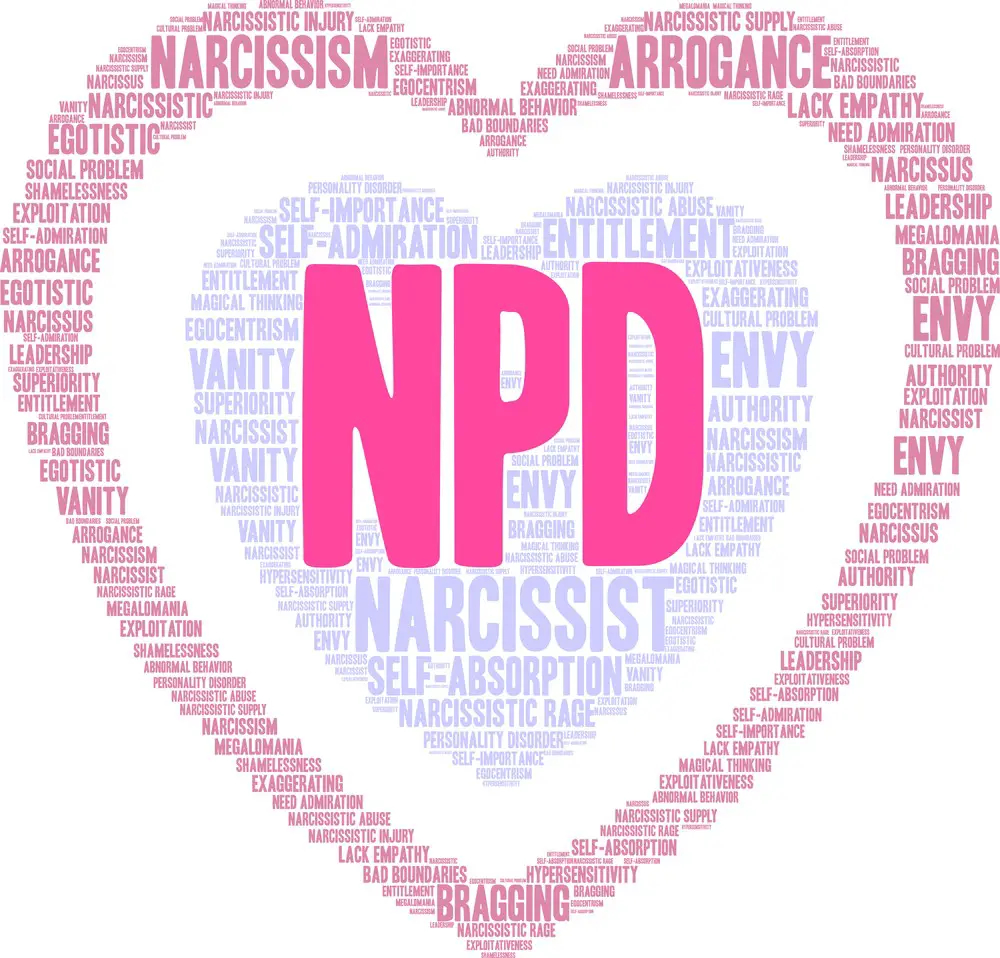As a BetterHelp affiliate, we receive compensation from BetterHelp if you purchase products or services through the links provided
The aging female narcissist is a fascinating and complex subject to explore, as her personality traits and behaviors pose unique challenges for those who encounter her. As women age, societal expectations and pressures often shift, which can greatly impact the manifestation of narcissism in older females. By understanding the basics of aging and female narcissism, we can better comprehend how this phenomenon presents itself and affects the people around it.
Narcissistic women, like their male counterparts, are driven by a need for validation, admiration, and control. However, their methods for obtaining these desires tend to evolve as they age. For instance, physical beauty may be replaced by grandiosity in other areas like social influence or intellectual prowess. Consequently, the aging female narcissist may resort to new tactics and behavior patterns to maintain her self-worth and superiority.
Key Takeaways
- The article explores the characteristics and behaviors of aging female narcissists
- Aging affects the manifestation of female narcissism, leading to evolving tactics for validation and control
- Understanding these changes can shed light on relationship dynamics with aging female narcissists and offer insights into therapy and healing

Aging Female Narcissist: Understanding the Basics
Narcissistic Personality Disorder
Narcissistic Personality Disorder (NPD) is a mental health condition characterized by an inflated sense of self-importance, a constant need for admiration, and a lack of empathy for others. People with NPD often have problems with relationships, work, and daily functioning. The aging female narcissist is no exception.
As women, narcissists experience a unique set of challenges when aging. Changes in their physical appearance and diminishing social power may fuel their insecurity, leading to intensified narcissistic behaviors to compensate. It’s important to understand the basics of this phenomenon to manage interactions with aging female narcissists.
Difference Between Male and Female Narcissists
While male and female narcissists share many traits, the two have some differences. Males tend to display more overt narcissism, such as arrogance and grandiosity. On the other hand, female narcissists are often covert, using subtle techniques to maintain control and manipulate relationships.
Some common traits of female narcissists include:
- Emotional manipulation: They may use guilt, silent treatments, or victimhood to control others.
- Competitiveness: Female narcissists often see other women as threats and may belittle or criticize them.
- Attention-seeking: They may go to great lengths to be the center of attention and validate their self-worth.
Understanding these differences can help identify and deal with female narcissists, particularly as they age and face unique challenges related to their narcissism.
Signs and Behavior Patterns of the Aging Female Narcissist
Manipulative Tactics
The aging female narcissist often uses manipulative tactics to maintain control over others. Emotional abuse and shame significantly affect their interactions with friends, family, and acquaintances. They may use guilt trips, aggressive behavior, or passive-aggressive tactics to manipulate others into submitting to their desires or needs.
Chasing Superficial Worth
As they age, narcissists seek superficial worth and validation from external sources. Often, this revolves around their appearance and attractiveness to others. They may become more desperate for attention, resorting to increasingly risky or attention-seeking behaviors to sustain their self-image.
Appearance and Attractiveness Obsession
Obsession with appearance and attractiveness is a key characteristic of the aging female narcissist. They may spend excessive time and resources on maintaining their looks, focusing on cosmetic procedures or elaborate makeup routines. This preoccupation with their physical appearance often masks deeper feelings of insecurity and an inability to find genuine self-worth. This can sometimes lead to compulsive behaviors or unhealthy emotional patterns.
The Impact of Aging on Female Narcissists

Declining Physical Appearance and Health
As female narcissists age, their once youthful and attractive appearance begins to fade. The loss of their physical allure can devastate them, as they have often relied on their looks to manipulate and control others. They may resort to excessive cosmetic procedures, strict diets, and obsessive exercise routines to maintain their attractiveness, but the aging process will eventually take its toll.
In addition to the decline in physical appearance, the health of aging female narcissists may also deteriorate. This can substantially blow their self-image, as they may have previously prided themselves on their vitality and strength. They may become more susceptible to illnesses, injuries, and chronic conditions such as dementia, further complicating their situation and making it increasingly difficult to maintain the illusion of perfection.
Isolation and Depression
As aging female narcissists face declining physical appearance and health, they may also experience social isolation. This can result from several factors, such as the natural progression of age causing people to drift apart, friends and family members growing tired of the narcissist’s manipulative and abusive behavior, or a divorce, leaving the narcissist without their former partner as a source of narcissistic supply.
The decrease in social connections, coupled with the loss of their physical attractiveness, can lead aging female narcissists to experience symptoms of depression. This emotional state can be further exacerbated by the realization that they can no longer control and manipulate the people around them easily. In severe cases, the narcissist may even become suicidal as they struggle to cope with their new reality. However, due to their nature, seeking help and support from others can be challenging, as acknowledging their vulnerability and need for assistance goes against their deeply ingrained self-image of superiority.

Relationship Dynamics with the Aging Female Narcissist
Demanding and Critical Nature
The aging female narcissist is often demanding and critical, which can significantly affect personal relationships. As she ages, her expectations for attention and validation may become increasingly unrealistic, causing strain and pain for those close to her. Her lack of empathy exacerbates this situation, as she may struggle to understand the needs and feelings of others.
The aging narcissist might be unwilling to take responsibility for her actions or accept constructive criticism. This can create a hostile environment and perpetuate relationship tension. Maintaining a one-sided dynamic where the narcissist is the sole benefactor may become exhausting and overwhelming for those involved.
Strained Personal Relationships
Strained personal relationships are common for the aging female narcissist due to her selfish and manipulative behavior. Often, individuals start distancing themselves from the narcissist as they grow tired of constantly catering to her emotional needs. The lack of empathy exhibited by the narcissist causes further isolation, as she is usually unable to understand or care for the feelings of others.
Over time, the narcissist may experience increasing difficulty maintaining close friendships and romantic relationships. While some individuals may be able to tolerate narcissistic behavior for a time, most will eventually seek healthier relationships that provide genuine care and support. Ultimately, the aging female narcissist may find herself surrounded by a shrinking circle of social connections, intensifying her feelings of inadequacy and loneliness.
The Aging Female Narcissist and the Collapse of the False Self
Narcissistic Collapse
As the aging female narcissist confronts the inevitable changes brought about by time, her false sense of self crumbles. Her self-esteem, once boosted by a constant flow of narcissistic supply, begins to wane. The validation and admiration she once thrived on become increasingly scarce, and her sense of self falters. As the mirror reflects an altered image of her former self, the once impenetrable façade starts to show cracks.
The narcissistic collapse is often triggered by external factors that challenge the narcissist’s well-constructed and meticulously maintained persona. These may include the loss of power or status, the onset of health problems, financial troubles, or the inability to maintain relationships.
Desperate for Validation and Admiration
As the narcissist’s false self collapses, her thirst for validation and admiration becomes even more desperate. No longer able to easily attract attention, the aging female narcissist might resort to stronger methods to ensure her continued relevance in the eyes of others. This could include manipulation, attention-seeking behavior, or overemphasizing her accomplishments.
- Manipulation: Having honed her skills throughout her life, the narcissist may manipulate those around her to get the desired attention. This could be through emotional blackmail, guilt-tripping, or even playing the victim.
- Attention-seeking behavior: To remain in the spotlight and regain lost admiration, she may engage in more visible and provocative actions, such as creating drama, making grand gestures, or picking fights.
- Overemphasis on accomplishments: The aging female narcissist may constantly remind others of her past achievements or exaggerate her success to elicit praise and admiration.
Coping with the Loss of the False Self
The narcissist faces an existential crisis as the false self crumbles, resulting in emptiness, frustration, and depression. The struggle to maintain her false identity can take a toll on her mental health, leading her to search for alternative sources of narcissistic supply or become increasingly isolated from others to protect her crumbling sense of self.
With the collapse of her false self, the aging female narcissist may also experience a period of introspection, potentially leading to personal growth and the development of a more authentic identity. However, in many cases, the process of discarding the false self is not easy, as it requires the narcissist to confront the deeply-ingrained belief systems and patterns of behavior that have fueled her narcissistic tendencies for years.
Approaching Therapy and Healing from the Aging Female Narcissist’s Influence
Therapeutic Interventions
As the aging female narcissist’s cognitive abilities decline, they may exhibit more anger outbursts and suicidal behavior. Addressing these issues requires the help of a trained therapist. They employ various therapeutic interventions to curb these negative emotions and actions, including improving emotional intelligence. A common practice involves working on emotional regulation, understanding one’s emotions, and learning how to express them effectively.
Another crucial aspect of therapy is helping the narcissist develop empathy and self-awareness. This may involve techniques such as role-playing, in which the therapist and client enact different scenarios to learn how to handle social interactions better and develop emotional intelligence.
Support and Healing for Victims
Therapy for the victims of aging female narcissists may involve individual or group sessions. In either case, the therapist should focus on healing and recovery from the emotional damage inflicted. Some helpful strategies include:
- Validation: Victims often have their experiences denied by the narcissist; therapists should validate their emotions, making them feel seen and heard.
- Boundary-setting: Victims should learn to establish and maintain healthy boundaries, allowing them to regain control and self-worth.
- Support systems: Encourage involvement in support groups and social activities to build a network of people who understand and empathize with the victim’s experiences.
- Coping mechanisms: Teach techniques to handle emotional outbursts or triggers, such as breathing exercises or journaling.
In summary, therapy is crucial in addressing the issues related to aging female narcissists and their victims. Trained therapists can employ various interventions to help the narcissist while providing support and healing strategies for those affected by their behavior.
FAQs
How does aging affect female narcissists?
Aging can challenge female narcissists as their physical appearance declines, often affecting their self-esteem. This may exacerbate narcissistic traits, such as seeking validation and attention from others and engaging in manipulative behavior.
What are the common behaviors of aging female narcissists?
Some common behaviors exhibited by aging female narcissists include a heightened need for admiration, increased entitlement, and hypersensitivity to criticism. They might also exhibit jealousy towards younger individuals or be overly focused on maintaining their appearance.
How can one navigate a relationship with an aging female narcissist?
Maintaining a relationship with an aging female narcissist can be difficult. Setting healthy boundaries, practicing self-care, and seeking support through therapy or support groups can be helpful strategies.
Do aging female narcissists ever seek treatment or change their behavior?
Aging female narcissists can seek treatment and change their behavior. However, it typically requires a strong desire for change and a willingness to confront their issues honestly. This can be challenging for narcissists, who often have difficulty recognizing their flaws.
Are there any resources for coping with an aging female narcissist in one’s life?
Yes, multiple resources are available for those coping with aging female narcissists in their lives. Some options include therapy, support groups, books, and online forums. These resources provide valuable information and tools for understanding and managing relationships with narcissists.
- Breaking the Silence: Why Men’s Mental Health Matters More Than Ever - April 15, 2025
- How to Transform a Home’s Patio Space into a Relaxing Space - March 23, 2025
- 5 Strategies to Use a Cell Phone to Help Manage Your Stress - March 23, 2025
This site contains affiliate links to products. We will receive a commission for purchases made through these links.


